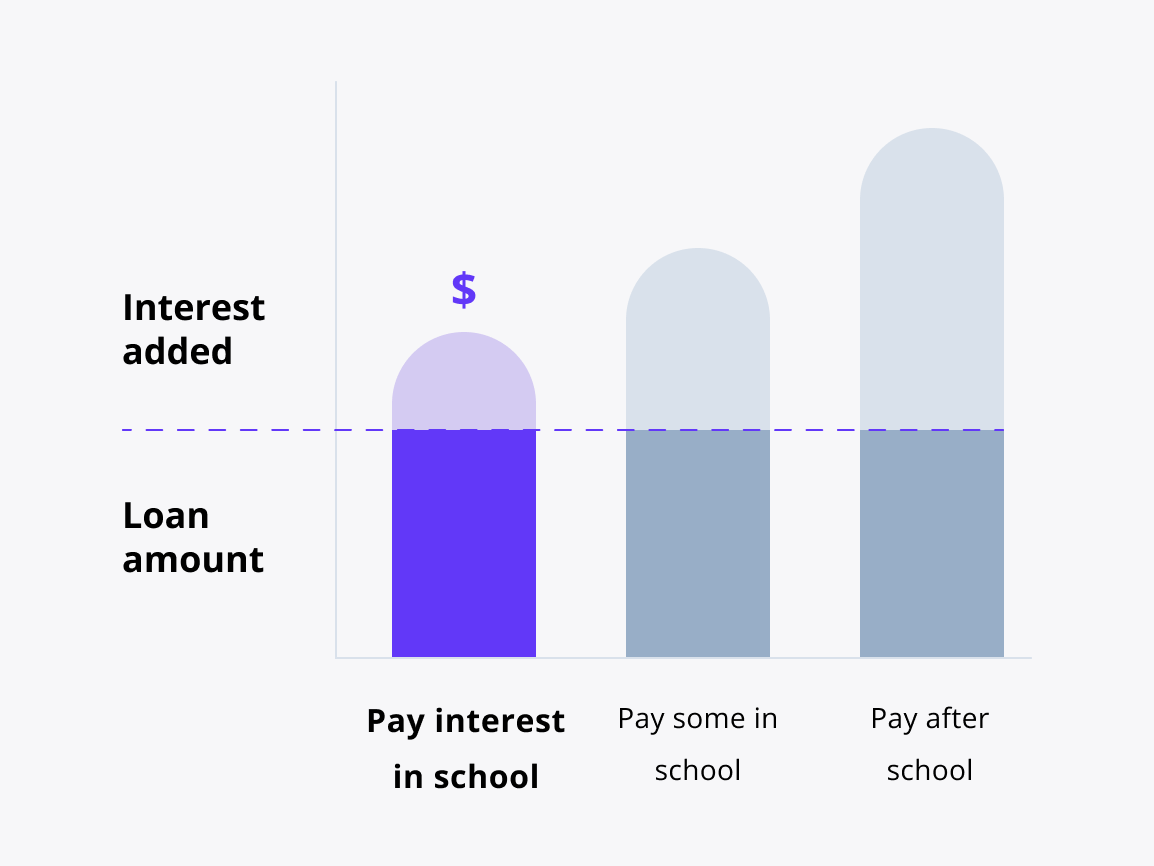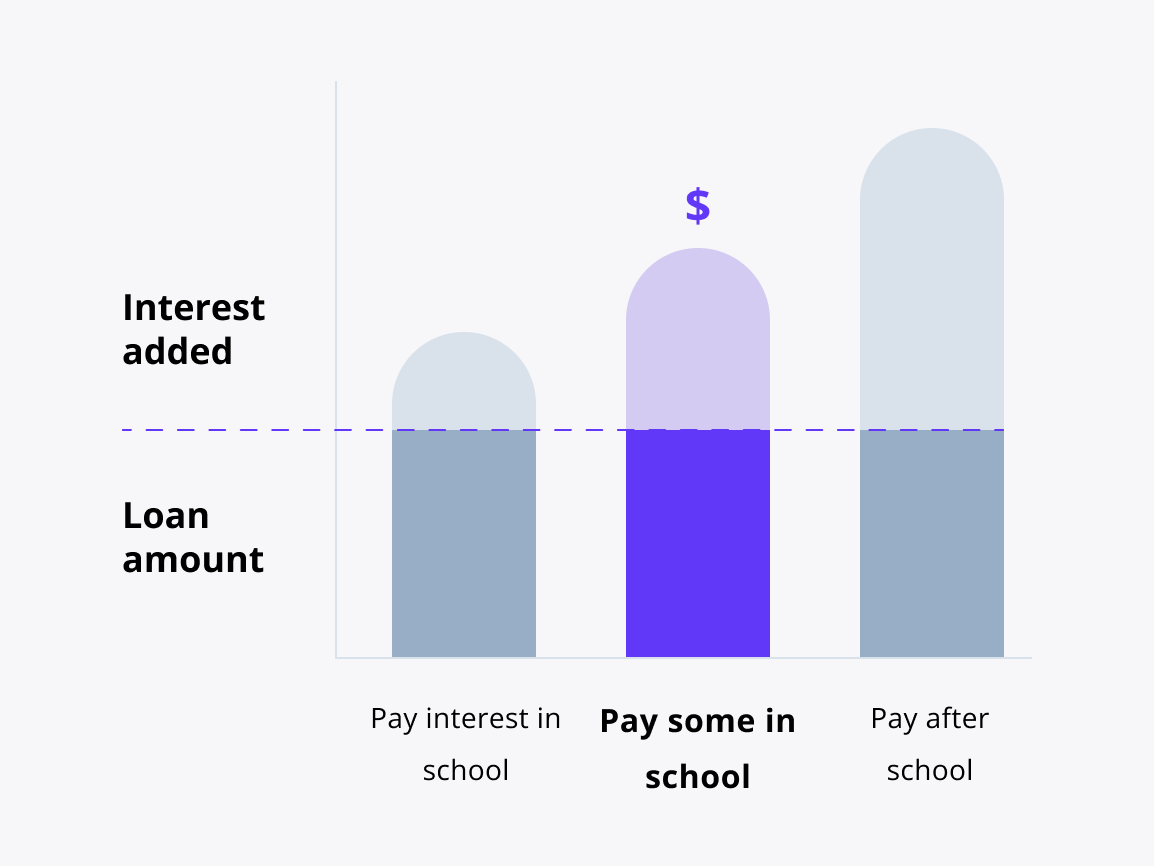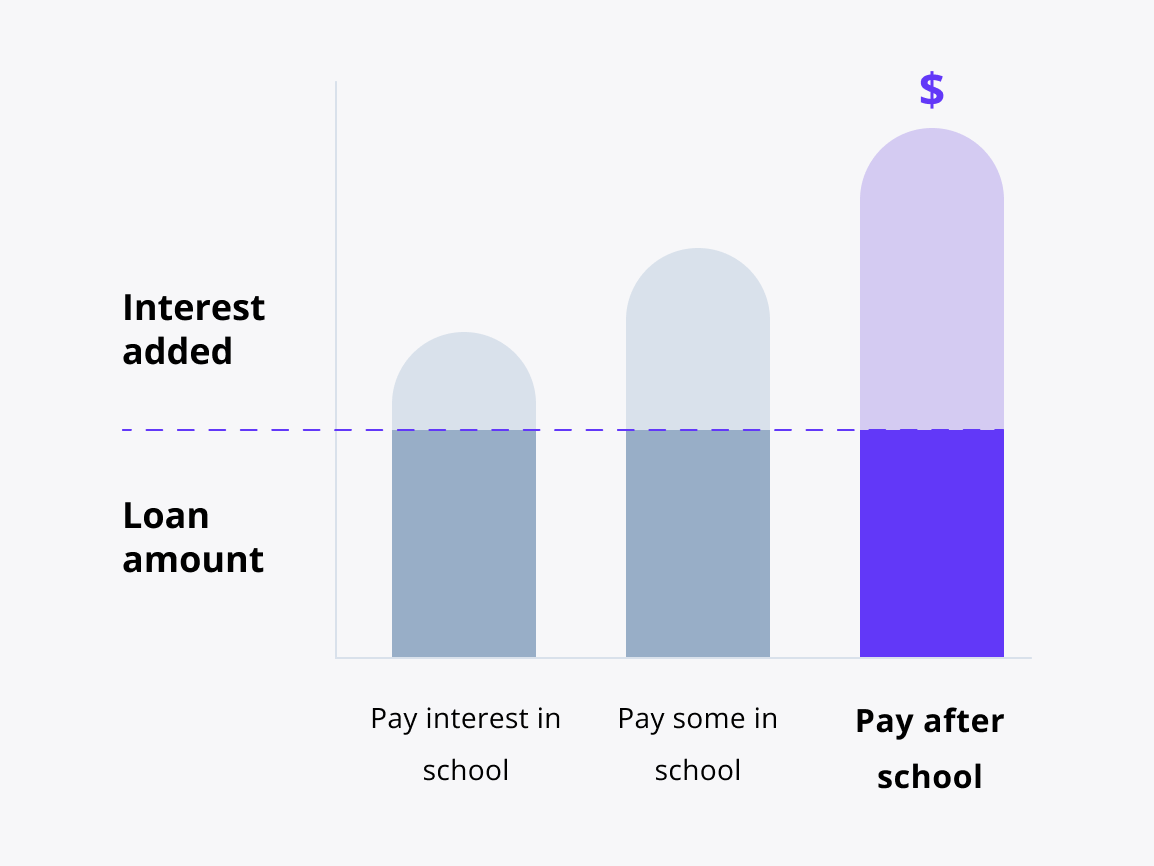You’re ready for your future with a career training student loan
Get the money you need to go all in on your professional training or trade school certificate course.
2.89%
to 17.64% APRfootnote 1
If you want a predictable monthly payment, this is the way to go.

3.75%
to 16.62% APRfootnote 1
This means your monthly payments may also change—they might be higher if interest rates rise and lower if they fall.

Career training student loan benefits
Breaking down your repayment options

Interest repayment option
How does it work?
You pay your interest every month you’re in school and in grace (the 6 months after).footnote 1
This is a great option if you want to save the most on your total loan cost.
Keep in mind:
You might have higher monthly payments, but the total cost of your loan may be lower.

Fixed repayment option
How does it work?
You pay $25 every monthfootnote 6 you’re in school and in grace.footnote 1
This is a great option if you want to make a dent in payments from the start.
Keep in mind:
Any interest you don't pay during school will be added to your principal amount (total borrowed) after grace.

Deferred repayment option
How does it work?
You have no scheduled payments while you’re in school and in grace.footnote 1
This is a great option if you want to focus on class and not on making loan payments.
Keep in mind:
The total cost of your loan may be higher because the interest you don’t pay on your loan while you’re in school and grace will be added to the original amount you borrowed (principal amount).
minutes
1. Tell us some basics
2. Choose your loan options
3. Sign and accept
Let’s make sure you’re ready
You’ll need a few things to apply like address, Social Security number (if you have one), and details about your school.
FAQs
Have other questions? We’re here to help.
1-877-279-7172